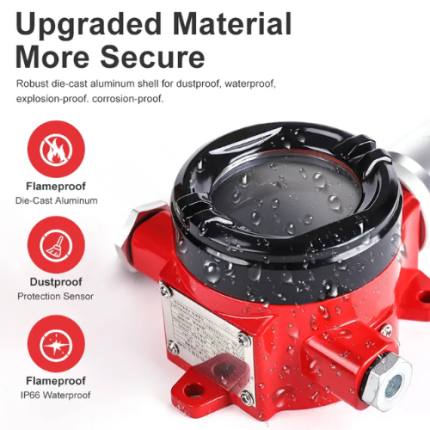Description
Technical Architecture
The Cellular IoT Enabled Smart Retail and POS System combines IoT-enabled hardware, edge computing, cellular connectivity, and advanced analytics to enhance retail operations. Key components:
- IoT Devices: RFID tags, smart shelves, and environmental sensors for inventory and environmental monitoring.
- Edge Gateways: Process and relay data between IoT devices and the cloud.
- POS Systems: Equipped with cellular modules for real-time, secure payment processing.
- Cloud Infrastructure: Centralized storage for analytics and remote management.
For insights on IoT architectures, refer to the IEEE IoT Standards.
List of Hardware
- RFID Tags and Readers: For seamless inventory tracking.
- Smart Shelves: Weight sensors for real-time stock updates.
- IoT POS Systems: Enable cashless transactions and instant reporting.
- Edge Gateways: Facilitate low-latency data processing.
- Environmental Sensors: Monitor temperature, humidity, and air quality.
- IoT Cameras: Customer traffic and security monitoring.
- Beacons: Deliver personalized marketing via mobile apps.
- IoT Routers: Ensure uninterrupted connectivity.
- Battery Backup Systems: Prevent downtime during power outages.
- Connected Signage: Display inventory, pricing, or promotions in real-time.
For RFID system standards, see the GS1 Global Standards.
Physical Placement Considerations
- Smart Shelves: Strategically placed in high-traffic areas.
- IoT Cameras: Positioned to monitor entryways and sensitive zones.
- POS Terminals: Located at customer-friendly checkout points.
- Edge Gateways: Centrally installed to optimize signal coverage.
- Sensors: Distributed near perishable or sensitive goods.
Guidelines for IoT hardware installation are detailed by the Institute of Electrical and Electronics Engineers (IEEE).
Hardware Architecture
- IoT Layer: Devices like RFID tags, sensors, and cameras collect raw data.
- Edge Computing Layer: Gateways preprocess data, ensuring lower latency and reduced cloud dependency.
- Network Layer: Cellular modules enable seamless data communication.
- Cloud Layer: Hosts historical data and advanced analytics dashboards.
- Application Layer: POS systems and mobile apps provide user interfaces for staff and customers.
For a deep dive into cloud-IoT integration, consult NIST Cloud Computing Guidelines.
Deployment Considerations
- Network Resilience: Ensure cellular service reliability across all store locations.
- Scalability: Design with future expansion in mind.
- Security: Adhere to PCI DSS and implement end-to-end encryption for transactions.
- Training: Equip staff with necessary skills for IoT-enabled POS operations.
- Integration: Ensure compatibility with ERP and CRM systems.
For deployment standards, review National Institute of Standards and Technology (NIST).
List of Relevant Industry Standards and Regulations
- PCI DSS (Payment Security)
- ISO 27001 (Information Security)
- GS1 Standards (RFID and IoT Standards)
- IEEE 802.15.4 (Wireless Protocols for IoT)
- GDPR / CCPA (Data Privacy Regulations)
Local Server Version
For offline use, a local server version of the system includes:
- Edge Gateways: For data aggregation and processing.
- On-Premise Storage: Ensures sensitive data remains local.
- Server Integration: Connects to ERP systems for seamless inventory management.
For server configuration standards, explore Open Compute Project.
Cloud Integration and Data Management
- Cloud Analytics: Provides advanced insights into sales, inventory, and customer behavior.
- Inventory Management: Updates stock levels in real-time, accessible across all locations.
- Customer Insights: Personalized recommendations based on behavioral data.
- Secure APIs: Enable integration with third-party applications like accounting and marketing software.
For guidelines on cloud data management, consult Cloud Security Alliance.
GAO Tek Inc. offers comprehensive support for implementing Cellular IoT systems, ensuring operational excellence and compliance.
GAO Case Studies of Cellular IoT Enabled Smart Retail and Point of Sale (POS) System
- New York City, NY
A major retail chain in New York implemented a Cellular IoT-enabled POS system to streamline inventory management and enhance customer experience. The system uses RFID technology and real-time data synchronization, significantly reducing stock-outs and improving checkout efficiency. The integration has helped increase customer satisfaction and operational efficiency. Source: IBM - Los Angeles, CA
A popular department store in Los Angeles adopted a Cellular IoT POS system to integrate mobile payment solutions, streamline checkout processes, and manage in-store promotions. With a robust cellular network, the store can now track customer interactions and product preferences, enabling personalized shopping experiences and targeted marketing campaigns. Source: Retail Dive - Chicago, IL
In Chicago, a convenience store chain introduced a Cellular IoT-enabled POS system to monitor sales transactions and optimize product placement. The system uses real-time analytics to improve inventory control, reducing waste and ensuring optimal stock levels. Additionally, it supports contactless payments, providing a faster and safer checkout process. Source: POS News - Houston, TX
A large electronics retailer in Houston implemented a Cellular IoT solution to upgrade its in-store POS systems. By leveraging cellular connectivity, the store can manage sales, process payments, and track customer data seamlessly across multiple locations. The system enhances customer service by reducing wait times and providing real-time inventory updates. Source: Retail Technology Review - San Francisco, CA
A high-end fashion retailer in San Francisco integrated Cellular IoT technology into its POS system to enable better customer interaction and streamline purchase transactions. The POS system syncs with the inventory system, ensuring real-time stock updates and improving the overall shopping experience with faster checkout options. Source: Retail TouchPoints. - Seattle, WA
In Seattle, a national grocery chain adopted a Cellular IoT-enabled POS system for inventory management and personalized promotions. The IoT system helps track in-store customer behavior and provides insights into product preferences, allowing for more efficient marketing and improved customer loyalty programs. Source: Grocery Dive - Miami, FL
A supermarket chain in Miami utilized Cellular IoT technology to optimize its POS system, reducing operational bottlenecks and enhancing customer experience. The system includes temperature-sensitive product tracking, providing alerts when items are nearing expiration, ensuring better stock rotation and improved inventory management. Source: Progressive Grocer - Atlanta, GA
In Atlanta, a retail franchise introduced a Cellular IoT-enabled POS system that integrates with cloud-based analytics. The system tracks sales patterns and customer preferences, enabling the retailer to create personalized offers and promotions while optimizing inventory to reduce overstock and understock situations. Source: Forbes - Dallas, TX
A retail chain in Dallas embraced Cellular IoT technology to support their POS systems, enhancing operational efficiency and improving data accuracy. Real-time data synchronization between the store’s POS systems and central servers ensures up-to-date inventory management and provides the ability to manage promotions and discounts seamlessly. Source: Business Insider. - Phoenix, AZ
A large-scale retail outlet in Phoenix deployed a Cellular IoT-powered POS solution for enhanced payment security and inventory tracking. The integration of IoT devices such as RFID tags allows for the automatic tracking of product movements throughout the store, leading to reduced shrinkage and enhanced stock accuracy. Source: IoT World Today - Denver, CO
A convenience store in Denver integrated a Cellular IoT-based POS system to boost sales operations and customer service. Real-time transaction data processing and stock updates through the cellular network helped improve the store’s customer service, reduce queues, and enable efficient stock management across its outlets. Source: Smart Retail - Boston, MA
A well-known retail chain in Boston implemented a Cellular IoT-powered POS system to improve its customer service and reduce transaction errors. The integration of cellular networks allows for seamless payments and real-time inventory updates, providing the store with the ability to optimize product offerings and streamline sales processes. Source: Retail Pro - Washington, D.C.
A retail chain in Washington, D.C. adopted a Cellular IoT-enabled POS system to gain better insights into consumer behavior. The system tracks sales data and provides retailers with real-time analytics, enhancing decision-making for inventory management, promotions, and customer engagement strategies. Source: Retail Leader - Minneapolis, MN
A retailer in Minneapolis introduced a Cellular IoT-based POS system to enhance its omnichannel retail strategy. The system allows the seamless integration of online and offline sales, providing real-time inventory visibility and enabling efficient order fulfillment for both in-store and online customers. Source: Retail Innovation - Detroit, MI
A furniture retailer in Detroit deployed a Cellular IoT-powered POS system to optimize its sales and inventory management. With the IoT system, the retailer can access real-time data, providing accurate inventory updates and personalized shopping experiences for customers both in-store and online. Source: Retail Week
Case Studies in Canada
- Toronto, ON
A leading department store in Toronto integrated Cellular IoT technology into its POS systems, enabling efficient data tracking, faster checkouts, and improved customer service. By utilizing IoT-connected POS devices, the store can track inventory levels in real-time and deliver tailored promotions, resulting in increased customer satisfaction and operational efficiency. Source: Canadian Retailer - Vancouver, BC
A large retail franchise in Vancouver leveraged Cellular IoT-enabled POS technology to enhance customer experience and streamline inventory management. The real-time data provided by the system helps manage product availability, improve sales forecasting, and enable seamless transactions across multiple locations, driving efficiency and boosting customer loyalty. Source: Retail Council of Canada
GAO Tek Inc. can assist in implementing a Cellular IoT Enabled Smart Retail and Point of Sale (POS) System by providing advanced solutions that integrate seamlessly into your existing infrastructure. Our solutions are tailored to meet the needs of modern retail environments, driving efficiencies and improving customer experiences across the board.
As a leading supplier of advanced B2B and B2G technologies, headquartered in New York City and Toronto, GAO Tek is committed to providing top-tier support and innovative solutions to meet your operational goals.
Navigation Menu for Cellular IoT
- Cellular IoT Accessories
- Cellular IoT Devices
- Cellular IoT – Cloud, Server, PC & Mobile Systems
- Cellular IoT Resources
Navigation Menu for IoT
- LORAWAN
- Wi-Fi HaLow
- Z-WAVE
- BLE & RFID
- NB-IOT
- CELLULAR IOT
- GPS IOT
- IOT SENSORS
- EDGE COMPUTING
- IOT SYSTEMS
Our products are in stock and can be shipped anywhere in the continental U.S. or Canada from our local warehouse. For any further information, please fill out this form or email us.
We are actively looking for partners who are like us located in the U.S. and Canada. For more information on partnering with GAO, please visit Partner with GAO Tek Inc. It lists various ways to partner with GAO, such as OEM Partnerships, Technology Integration, Distribution and Reselling Opportunities, Presenting at the Leading Event Tek Summit, Joint R&D Projects, Training and Consulting Services, Industry-Specific Collaborations, Research and Academic Partnerships.



